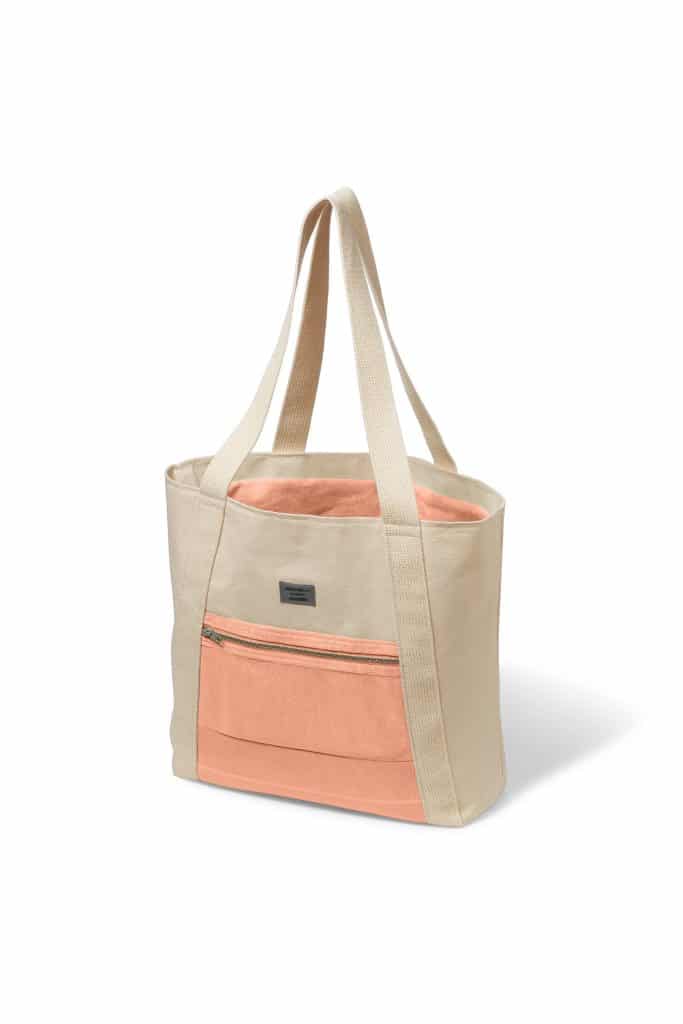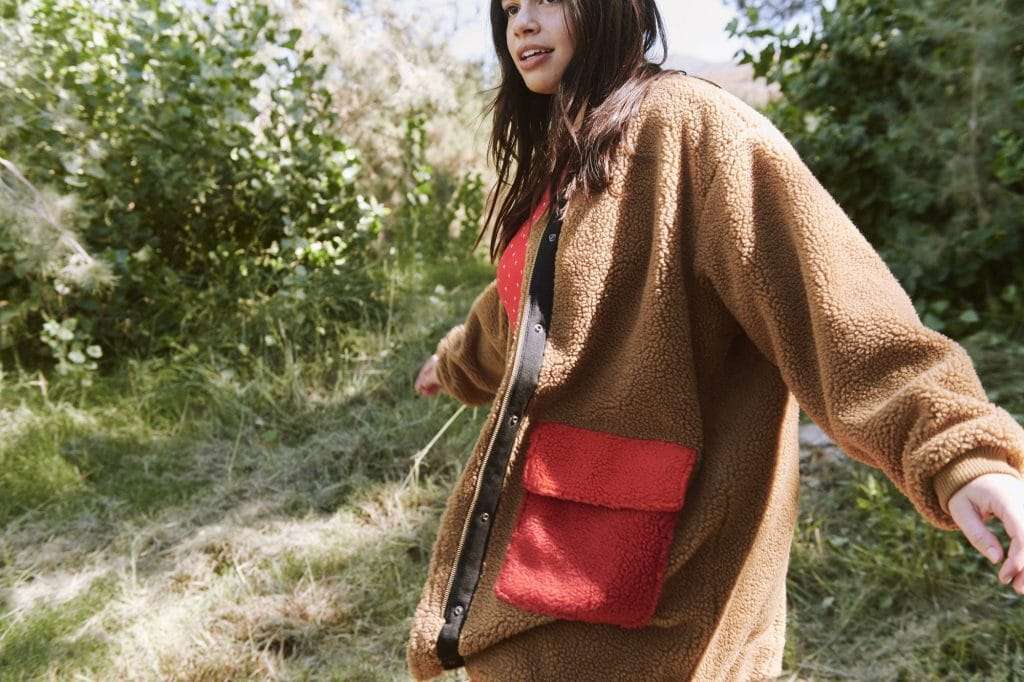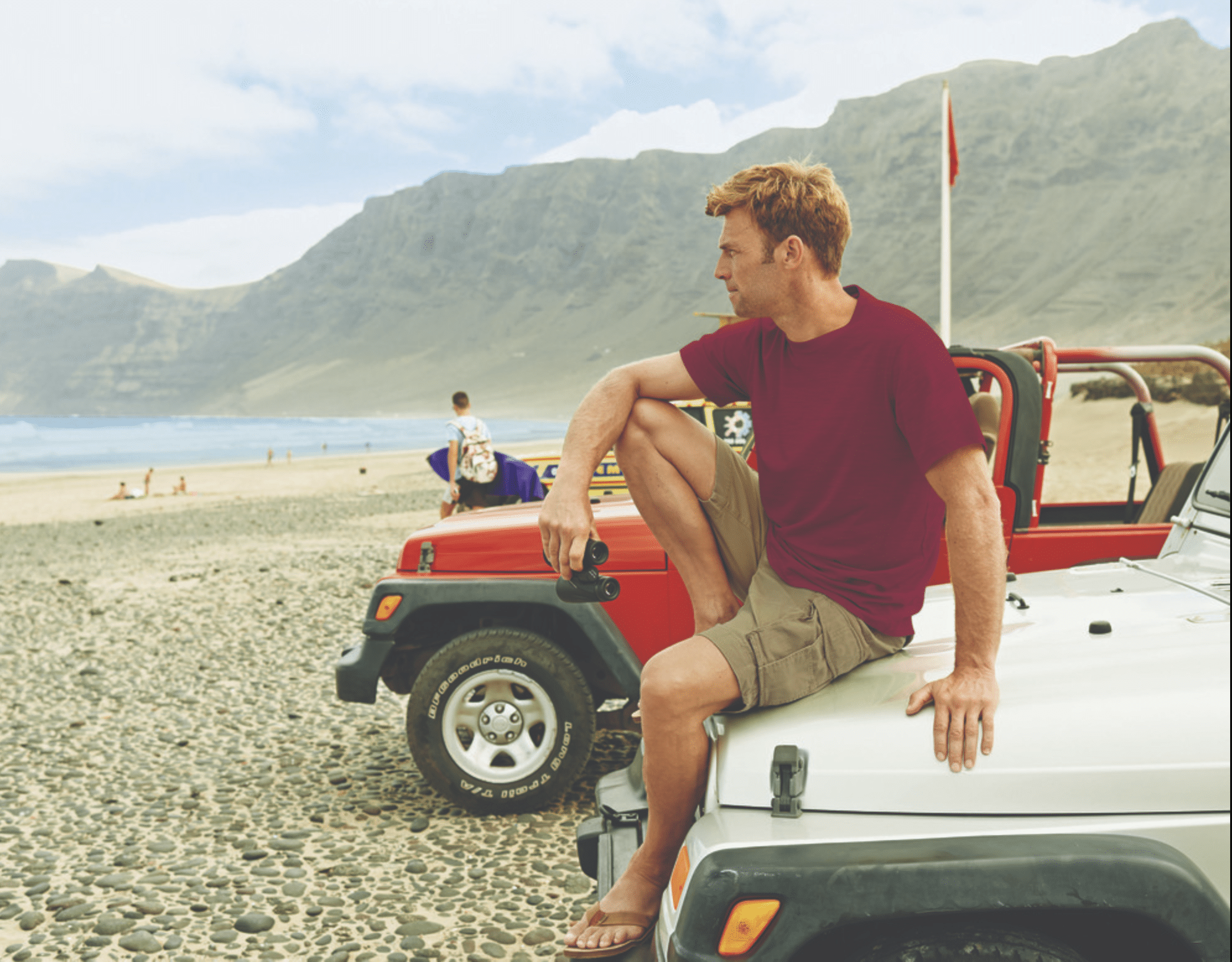Sustainability comes to Eddie Bauer with its first upcycled bag collection as it sets the pace for a future of leaving no trace.
Outdoor giant Eddie Bower launched its first collection of bags made from scrap materials in a partnership with fellow northwest outfitter, Oregon-based Looptworks. The products were launched on Earth Day.
It builds on the brand’s “live your adventure” philosophy, reeling in a caveat to the slogan along the lines of “responsibly.”
With the new Reform Collection (stylized as (RE)FORM) consumers can test-drive Eddie Bauer’s new ethos with three bags: a bucket, hip pack, and tote bag made from damaged or unsalable Eddie Bauer sweatshirt materials.
The scraps are collected from Eddie Bauer stores and factories and sent to Looptworks to be turned into the bags.
(RE)FORM
“We’re so excited to partner with a fellow Pacific Northwest-based company that aligns with our brand’s sustainability goals,” Damien Huang, Eddie Bauer CEO, said in a statement. “Together with Looptworks, we can help minimize waste through new innovative means.”
Looptworks is a certified B Corp that’s focused on upstream circular solutions for excess textile materials. It’s partnered with sustainable leader in footwear and outerwear, Adidas, fast fashion leader Shein, as well as the NBA, Alaska, Delta, and Southwest Airlines.

“Looptworks is pleased to bring our circularity solutions to Eddie Bauer,” said Looptworks Founder and CEO, Scott Hamlin. “We look forward to partnering with Eddie Bauer to help them achieve their sustainability goals.”
The announcement follows Eddie Bauer’s sustainability roadmap, announced last December in partnership with the SPARC Group. The 100-year-old outdoor clothing and gear brand out of Bellevue, Washington, has lagged behind its biggest competitor, the certified B Corp Patagonia, in making environmental commitments. It says the new roadmap will help it move quickly toward ambitious sustainability goals.
“I commend the work [Huang] and his team have put forth over the last few years to define what sustainability means not just for Eddie Bauer, but for the entire outdoor industry,” said Marc Miller, CEO of SPARC Group. “These newly established standards will help us benchmark similar practices across the SPARC portfolio.”
Sustainability at Eddie Bauer
The new roadmap includes some ambitious targets including moving to Bluesign certified on 100 percent of products by 2030. It’s also aiming for 100 percent organic or recycled cotton and 100 percent recycled polyester or nylon by 2030, with a 50 percent compliance target by 2025. Eddie Bauer is also aiming to source 50 percent of its rayon, lyocell, and modal from recycled sources by 2025, with the remainder coming from FSC-certified sources.
Its sustainability metrics also include shifting to 80 percent renewable electricity by 2025, and hitting 100 percent by 2030. By next year, Eddie Bauer says it will set “aggressive targets” as part of its commitment to reduce its carbon footprint.

Packaging is expected to get an eco upgrade as well. By 2030 it will reduce average packaging weight by 50 percent, and 50 percent of all plastic by weight will be post-consumer by 2025. Also by 2025, the company says 100 percent of its paper-based packaging with FSC-certified, with the goal of 100 percent post-consumer by 2030. The brand will also develop a restricted substances list program by next year, with the goal of 100 percent resolution by 2030.
The brand is taking another queue from competitor Patagonia and launching its own resale platform in-house. It’s slated for 2023, and will include rental, resale, repair, and upcycled gear with targets to expand each category. Last summer, it launched a pilot rental program enabling shoppers to rent men’s and women’s apparel and footwear products, as well as essential gear like backpacks, camp chairs, tents, and headlamps.

The rental and resale markets are booming as consumers seek to reduce their environmental footprint. Fashion is one of the biggest climate offenders and a leading cause of wastewater.
The new collection of Reform bags sees the brand test the market with its customers. It promises more to come.
Eddie Bauer is celebrating its recent environmental commitments with 100,000 trees planted per year as well as an annual “Tree Equity” project in partnership with American Forests.
“As an outdoor brand born in the Pacific Northwest, a focus on the environment has always been at the center of Eddie Bauer’s mission and it continues to be, with the renewed priorities and goals we are setting for apparel and gear,” Huang said. “We recognize the vital importance of preserving our natural resources and doing our part to ensure our business practices are supporting a sustainable future.”


